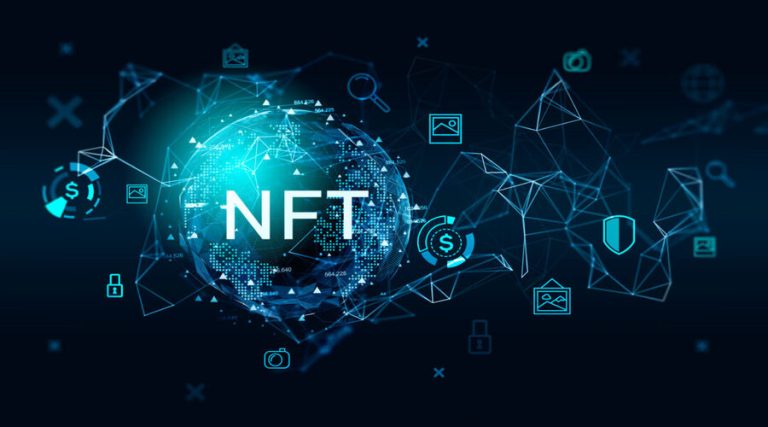
Decentralized Identity and KYC: Verifying User Identities in a Trustless Manner
Introduction
In today’s digital age, where personal data is increasingly vulnerable to breaches and misuse, the need for secure and reliable identity verification has become paramount. Traditional identity verification processes, such as Know Your Customer (KYC) protocols, rely on centralized authorities and intermediaries. However, the rise of blockchain technology and decentralized systems has paved the way for a new approach called decentralized identity, enabling trustless verification of user identities. This article explores the concept of decentralized identity and its role in KYC processes.
Understanding Decentralized Identity
Decentralized identity refers to a system where individuals have control over their personal information and can selectively disclose it to service providers or requestors. It leverages blockchain technology, cryptographic techniques, and smart contracts to enable secure and verifiable identity management. In a decentralized identity system, users create and manage their digital identities, which are stored on a blockchain or distributed ledger. These identities are unique, tamper-proof, and under the user’s full control.
The Need for KYC in a Trustless Environment

While decentralized identity offers enhanced privacy and security, there is still a need for KYC processes in various industries. KYC ensures that individuals are who they claim to be, preventing fraud, money laundering, and other illicit activities. In a trustless environment, where intermediaries are eliminated, KYC becomes crucial to establish trust between parties engaging in financial transactions or accessing sensitive services.
Challenges with Traditional KYC Processes
Traditional KYC processes suffer from several limitations. They are often time-consuming, requiring users to submit physical documents and go through manual verification processes. Additionally, centralized storage of personal data increases the risk of data breaches. Furthermore, KYC information collected by different service providers is often duplicated, leading to inefficiencies and privacy concerns. These challenges highlight the need for a more efficient and secure approach to identity verification.
Decentralized Identity Solutions for KYC
Decentralized identity offers innovative solutions to address the limitations of traditional KYC processes. By leveraging blockchain technology, user identities can be stored in a distributed manner, reducing the risk of data breaches. Moreover, decentralized identity systems allow for selective disclosure of personal information, granting users greater control over their data. Verifiable credentials, such as digital passports or licenses, can be issued by trusted entities and cryptographically signed to ensure authenticity and integrity.
Implementing Verifiable Credentials
Verifiable credentials play a crucial role in decentralized identity systems for KYC purposes. These credentials are digital representations of personal information and can be issued by trusted entities, such as government agencies or financial institutions. Verifiable credentials are cryptographically secured, enabling easy verification without revealing the underlying data. Service providers or requestors can validate the credentials using cryptographic proofs, ensuring the authenticity of the user’s identity without accessing sensitive information.
1. Credential Issuance and Revocation
In decentralized identity systems, trusted entities issue verifiable credentials to individuals. These credentials contain specific attributes or claims about the user, such as their name, date of birth, or address. The issuing entity cryptographically signs these credentials, ensuring their integrity and authenticity. If a user’s information changes or if a credential needs to be revoked due to compromise or expiration, the issuing entity can update the credential or revoke it entirely.
2. Credential Verification
When a user wants to prove their identity to a service provider or requestor, they present their verifiable credential. The service provider verifies the credential’s authenticity by validating the cryptographic signature and confirming its integrity. This verification process can be done without the need to access a centralized database or revealing the user’s underlying personal information, enhancing privacy and security.
Privacy and Security Considerations
Privacy and security are paramount in decentralized identity systems. User consent and data minimization principles are embedded in the design, ensuring that only necessary information is shared with service providers. Zero-knowledge proofs and other privacy-preserving techniques can be employed to validate credentials without exposing the underlying data. Moreover, the decentralized nature of these systems reduces the risk of single points of failure and unauthorized access.
1. Zero-Knowledge Proofs
Zero-knowledge proofs allow for the verification of a statement without revealing the underlying information. In decentralized identity systems, zero-knowledge proofs can be used to prove attributes or claims about a user without disclosing the specific details. For example, a user can prove they are over 18 years old without revealing their exact birthdate. Zero-knowledge proofs enhance privacy by enabling selective disclosure of information.
2. Secure Storage and Encryption
In decentralized identity systems, personal information is typically stored in encrypted form on the blockchain or distributed ledger. Encryption ensures that even if the data is accessed without authorization, it remains unreadable and unusable. Users have control over their encryption keys, further strengthening the security of their information.
3. User Consent and Granular Data Sharing
Decentralized identity systems prioritize user consent and granular data sharing. Users have the authority to determine which attributes or claims they want to share with different service providers. This selective disclosure minimizes the amount of personal information exposed, reducing the risk of privacy breaches.
User Experience in Decentralized Identity Systems
User experience plays a vital role in the adoption of decentralized identity systems. Efforts should be made to create intuitive and user-friendly interfaces that allow individuals to easily manage their digital identities and control the disclosure of personal information. Seamless integration with existing applications and services is crucial to ensure a smooth transition to decentralized identity solutions.
1. User-Friendly Identity Wallets
Identity wallets serve as the user interface for managing decentralized identities. These wallets should provide a simple and intuitive experience, allowing users to view and manage their credentials, control data sharing settings, and easily authenticate with different service providers. User-friendly identity wallets can drive the adoption of decentralized identity systems by making them accessible to individuals with varying levels of technical expertise.
2. Interoperability with Existing Systems
To enhance user experience, decentralized identity systems should strive for interoperability with existing identity frameworks and systems. This allows for a seamless integration process and ensures that individuals can use their decentralized identities across different applications and platforms without friction. Interoperability reduces the need for users to create and manage multiple identities for different services, enhancing convenience and usability.
Scalability and Interoperability
Scalability and interoperability are key challenges in decentralized identity systems. As the number of users and transactions grows, the underlying infrastructure must be capable of handling increased demands. Interoperability standards and protocols should be established to ensure compatibility between different decentralized identity solutions. Collaborative efforts within the industry are essential to address these challenges and enable widespread adoption.
1. Blockchain Scalability Solutions
To address scalability concerns, various solutions are being explored in decentralized identity systems. Layer 2 scaling solutions, such as sidechains and state channels, can alleviate the load on the main blockchain by processing transactions off-chain. Additionally, advancements in consensus algorithms, like proof-of-stake (PoS) and sharding, offer increased scalability without compromising security. These scalability solutions are crucial to accommodate a growing user base and ensure smooth and efficient operations.
2. Interoperability Standards
Interoperability is essential to enable seamless communication and data exchange between different decentralized identity systems. Efforts are being made to develop interoperability standards, such as the Decentralized Identity Foundation’s (DIF) DID (Decentralized Identifier) specifications and the W3C’s (World Wide Web Consortium) Verifiable Credentials standard. These standards aim to establish a common framework for decentralized identity systems, allowing them to interoperate and share data securely.
3. Cross-Platform Integration
For decentralized identity systems to gain widespread adoption, they need to integrate with existing platforms and services. APIs (Application Programming Interfaces) and SDKs (Software Development Kits) can facilitate the integration process, enabling developers to incorporate decentralized identity features into their applications and systems. Cross-platform integration ensures that users can leverage their decentralized identities across various online platforms, enhancing convenience and usability.
Regulatory Compliance and Legal Frameworks
Decentralized identity systems need to operate within existing regulatory frameworks. Compliance with KYC and anti-money laundering (AML) regulations is crucial to prevent illicit activities. Establishing legal frameworks that accommodate decentralized systems while safeguarding user rights and protecting against fraud is a necessary step. Collaboration between regulators, industry stakeholders, and technology innovators is essential to strike the right balance between innovation and compliance.
The Future of Decentralized Identity and KYC
The future of decentralized identity and KYC holds great promise. With advancements in blockchain technology, cryptographic techniques, and user-centric design, decentralized identity systems are poised to revolutionize the way identity verification is conducted. Increased adoption and collaboration among industry players will drive the development of standards and best practices. As these systems mature, they have the potential to enhance privacy, security, and trust in digital interactions.
Conclusion
Decentralized identity offers a compelling solution to the challenges posed by traditional identity verification processes. By empowering individuals with control over their digital identities and enabling trustless verification, decentralized identity systems enhance privacy, security, and user experience. KYC processes within decentralized systems can leverage verifiable credentials and cryptographic techniques to ensure reliable identity verification without compromising sensitive information. As the technology continues to evolve, decentralized identity has the potential to shape a more secure and user-centric digital future.


